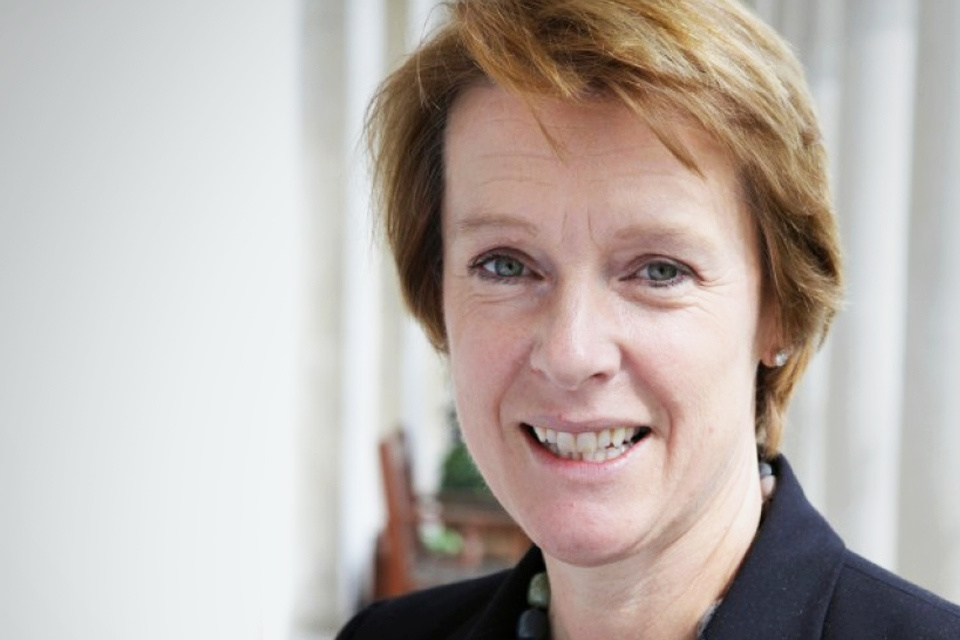Caroline Spelman speech at ‘The World We Want to See: A Christian conversation on Rio+20
Good evening, ladies and gentlemen. I am delighted to be here today at Central Hall, Westminster and my thanks to Christian Aid, Progressio, CAFOD and Tearfund for organising this timely event.

Good evening, ladies and gentlemen. I am delighted to be here today at Central Hall, Westminster and my thanks to Christian Aid, Progressio, CAFOD and Tearfund for organising this timely event.
It is great to see so many people coming together to discuss the important economic, environmental and equity issues ahead of the Rio+20 Summit now less than a month away.
We have come a long way since the Earth Summit 20 years ago - and it is important to acknowledge that.
It was a turning point in the way the world looks at the links between the environment, development, and the economy. There has been progress on poverty alleviation, with significant improvements in access to water, education and healthcare in all regions of the world. Many businesses have embraced sustainability issues, and renewable energy has grown substantially.
Yet substantial challenges remain. Approx 1.4 billion people around the world still live in extreme poverty and those who were the poorest 20 years ago are still the poorest now. Environmental degradation continues, and sustainability has not been integrated fully into economic decision making
The global population is set to increase by a third by 2050. By 2030, the world will need at least 50% more food 45% more energy, and 30% more water, and this will need to be produced without further damaging the environment. So we face a twin challenge: to eradicate poverty and drive up living standards while living with finite resources. In my view, this can only happen by ensuring that we promote sustainable and inclusive growth.
We have the opportunity - the responsibility - to take action at Rio. To meet these challenges - not just for our own sake, but for future generations.
We need Rio to hasten change -across all sectors and across all continents.
Economic growth, and development is necessarily a priority for all countries The world’s economic activity must be green it must be sustainable, and it must enhance wellbeing and societal progress. The green economy cannot just be a subset of the global economy, and it must be inclusive.
It is often the poorest people who rely on natural resources for their livelihoods
Yet at present, 20 per cent of the world’s population accounts for around 80 per cent of the consumption of global resources.
And the world is consuming 50 per cent more than is environmentally sustainable.
We need a new paradigm for growth: one that recognises the links between economic growth, environmental constraints and human well-being.
This is a global issue that requires global action. The Deputy Prime Minister and I will be going to Rio in just under a month’s time - and we want to come away with a tangible outcome which will drive action to put the world on a more sustainable footing, which will alleviate poverty and increase equity.
This could be in the form of an agreement to develop Sustainable Development Goals - or SDGs to drive forward international action on the major sustainability challenges facing the planet.
We need a small number of them, focussed on the most critical sustainability issues, which are linked to poverty eradiation, growth and development.
I would like to see them focus on food, water and energy.
These themes are key - not just to our economy - but for the lives of many of the world’s poorest people.
To take food for example- half of the world’s undernourished people and the majority of people living globally in absolute poverty are estimated to be smallholders - dependent on farming for their existence and most vulnerable to threats to the food system.
Agriculture also uses 70 per cent of fresh water - and we need to feed an increasing population whilst ensuring that everybody has access to clean drinking water - a luxury which currently 740 million people are not afforded.
We need global recognition of these issues and focus to drive forward change - in a coherent and coordinated way. SDGs are the means, I believe, to do this.
In addition, we are keen for Governments to agree to measure not just financial growth, but the quality of that growth.
To go beyond GDP and develop a more complete measurement of prosperity - incorporating natural and social capital into our decision making
We are leading the way in this area - through initiatives such as the Prime Minister’s work to assess well-being and the work of the Natural Capital Committee which has been set up to take stock of our resources.
We want to share this expertise and showcase this work with other nations at Rio. The UK and the World Bank will be holding a Natural Capital Summit - where we would like to secure a new commitment to sustainability from Governments - and businesses too
And I’m pleased to see the private sector represented here because at Rio we really do need to make progress on business sustainability reporting - and see commitments from business to put sustainability at the heart of their own decision making, Governments can set the framework, but it is the private sector who will drive the green economy.
So I’m pleased to see so many people here today from all parts of society - governments, NGOs, and business. We are all in this together - we need to engage 7 billion people
As a Christian, I recognise that the “Earth is the Lord’s and everything in it” and that the generation I am born into has a responsibility to steward these resources with great care. My hope is we will leave the planet in better condition than we found it for the sake of generations to come.
Thank you.